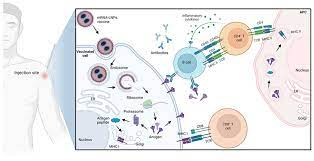A shot in the arm!
Vaccines have helped control many infectious diseases. But developing them is not easy and also takes years. With researchers working tirelessly for months together, what seemed like an endless wait for a vaccine against COMD-19 has given way to hope with the UK approving the Pfizer/ BioNTech vaccine for the coronavirus. COVID-19 has claimed over 1.5 million lives worldwide
Pfizer’s BNT162b2, which took only 10 months from conception to approval is an MRNA vaccine approved for use in humans for the first time. The vaccine has been shown to be 95% effective in preventing COMD-19. It needs to be stored in bones containing dry ice that are capable of staying at -70 degrees Celsius, the frigid temperature needed to preserve the drug. Besides the U.K., other countries such as Bahrain Canada, Saudi Arabia, Mexico, Israel and the U.S. have approved the emergency use of the Pfizer vaccine.
What is an MRNA vaccine?
Vaccines work by priming the body to recognise and fight the proteins produced by disease-causing organisms. Instead of using an inactivated coronavirus or viral proteins in a vaccine, an MRNA vaccine uses a messenger RNA, or MRNA, to prompt an immune response in the body. An MRNA is a synthetic genetic material, a copy of a natural component of living cells. An mRNA vaccine carries genetic instructions, which direct cells in the body to make viral proteins that prime the immune system to produce protective antibodies. If these antibodies adhere to a virus, it cannot enter the cells to replicate.
Are they safe?
MRNA vaccines are said to be safer than live vaccines, as there is a risk of the virus reverting to a dangerous form with the latter. MRNA vaccines are not likely to produce unwanted reactions. Besides, they can be made much faster than the traditional vaccines.
Picture Credit : Google


